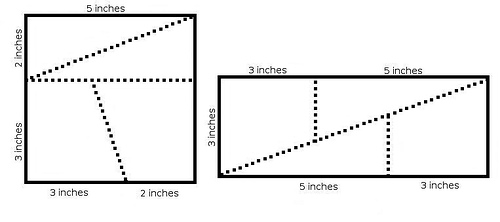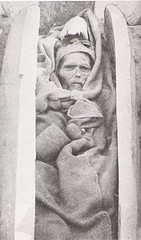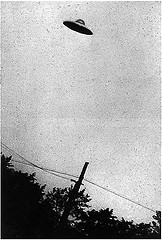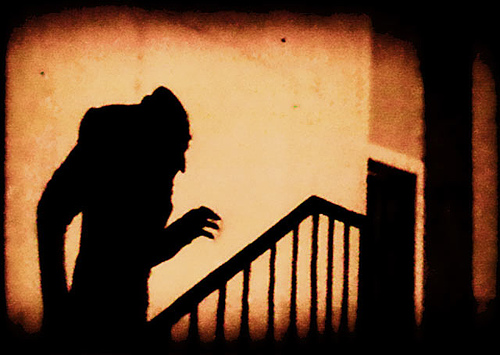
The first figure, measuring 5 by 5, can be reassembled to form the second, measuring 8 by 3. Thus 25 equals 24.

The first figure, measuring 5 by 5, can be reassembled to form the second, measuring 8 by 3. Thus 25 equals 24.
lethonomia
n. a propensity for forgetting names
Leghorn, August 9, 1817. On the 24th of July, about mid-day, after a very loud detonation, the Lake of Canterno, also called Porciano, totally disappeared. A large opening was discovered in the bottom, through which the waters have probably escaped into sinuosities of the neighbouring mountains.
— London Morning Post, August 30, 1817

Who is this? His angular features and recessed eyes suggest that he’s Caucasian, and genetic tests support this, but he was found in the Tarim Basin of western China in 1910. Many such mummies have been found there, desiccated by the desert and sometimes still bearing blond or red hair. Who were they, and where did they come from?
It had been commonly believed that civilizations developed independently in East and West, but these finds suggest that Western nomads may have reached China by 1,000 B.C. or earlier, traveling from Europe, the Mediterranean, or even Iran.
Ancient Chinese books describe tall figures with deep-set blue or green eyes, long noses, full beards, and red or blond hair. Apparently they weren’t legends.

A terrier, known to Professor Owen, was taught to play at hide and seek with his master, who summoned him, by saying ‘Let us have a game;’ upon which the dog immediately hid his eyes between his paws, in the honourable manner, and when the gentleman had placed a sixpence, or a piece of cake in a most improbable place, he started up and invariably found it. His powers were equalled by what was called a fox-terrier, named Fop, who would hide his eyes, and suffer those at play with him to conceal themselves before he looked up. If his play-fellow hid himself behind a window-curtain, Fop would, for a certain time, carefully pass that curtain, and look behind all the others, behind doors, etc., and when he thought he had looked long enough, seize the concealing curtain and drag it aside in triumph.
— Edmund Fillingham King, Ten Thousand Wonderful Things, 1860

Purported UFO, Passoria, N.J., 1952. Enthusiasts point out that with 250 billion stars in the Milky Way and 70 sextillion in the visible universe, it’s overwhelmingly likely that there are other intelligent, communicating beings out there.
But over a lunch discussion in 1950, physicist Enrico Fermi asked a telling question: “Where are they?” The universe is 13 billion years old, and it’s been estimated that an advanced civilization could colonize our whole galaxy in 5 million years. That’s a flash, as cosmologists reckon time — even if the aliens themselves couldn’t survive an interstellar journey, surely they could design a self-replicating spacecraft that could.
So how come we haven’t met our galactic neighbors? Opinions vary. Maybe we’re in a zoo. Maybe they’re so alien that even detecting them is impossible. Or maybe they don’t believe in us.
How to address your betters:
In 1732, Alexander Pope gave a greyhound to George II. He engraved a couplet on its collar: “I am his Highness’ dog at Kew; Pray tell me, sir, whose dog are you?”

“Where there is no imagination there is no horror.” — Arthur Conan Doyle
When Johnny Depp began dating Winona Ryder, he got a tattoo reading “Winona Forever.”
When they broke up, he changed it to “Wino Forever.”
At an humble inn where there were only six rooms, seven travellers applied for lodging, each insisting on having a room to himself. The landlord put the first man in room No. 1 and asked one of the other men to stay there also for a few minutes. He then put the third man in room number two, the fourth man in room No. 3, the fifth man in room No. 4, and the sixth man in room No. 5. Then returning to room No. 1 he took the seventh man and put him in room No. 6. Thus each man had his own room!
— H.E. Licks, Recreations in Mathematics, 1917